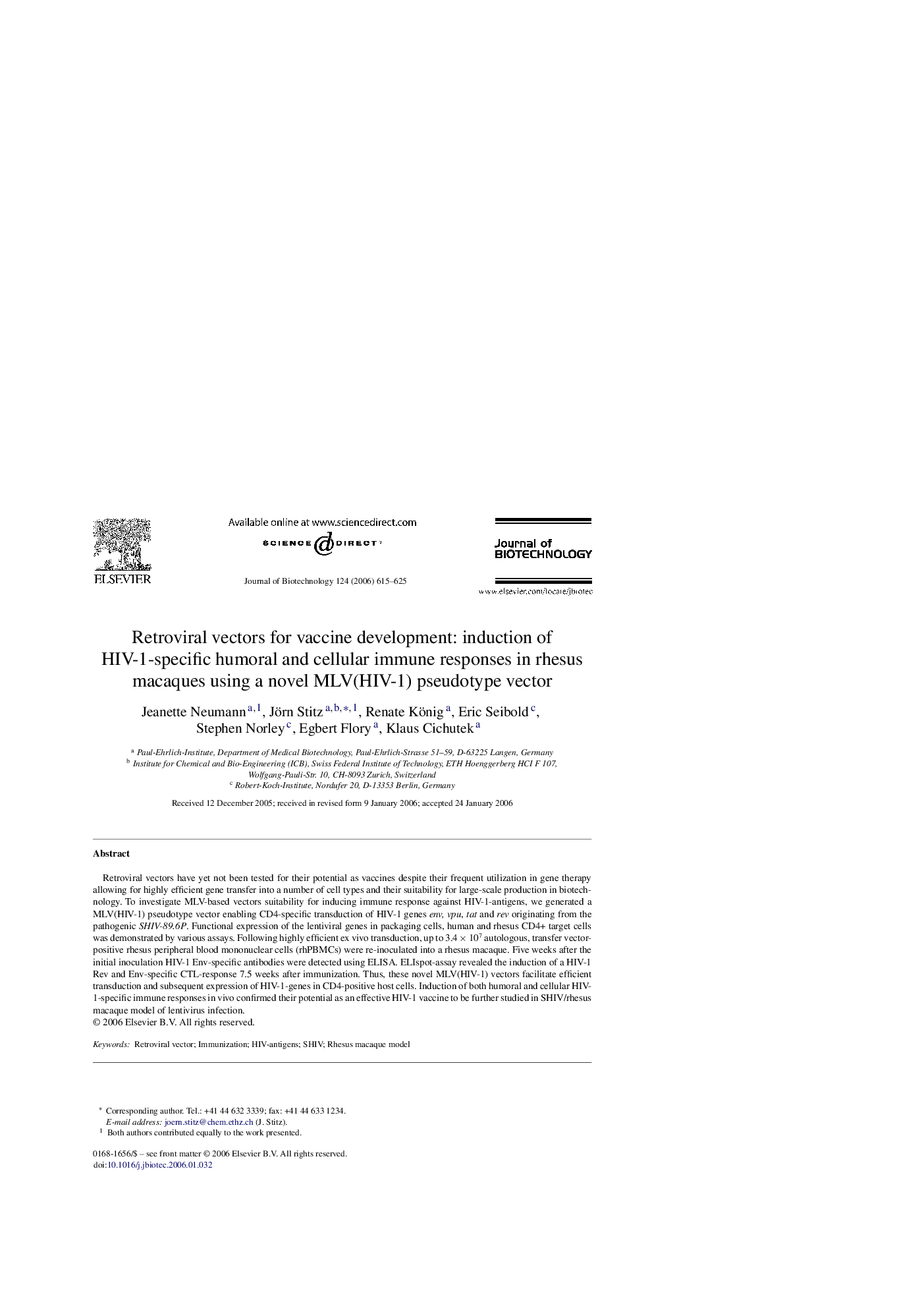| Article ID | Journal | Published Year | Pages | File Type |
|---|---|---|---|---|
| 25722 | Journal of Biotechnology | 2006 | 11 Pages |
Retroviral vectors have yet not been tested for their potential as vaccines despite their frequent utilization in gene therapy allowing for highly efficient gene transfer into a number of cell types and their suitability for large-scale production in biotechnology. To investigate MLV-based vectors suitability for inducing immune response against HIV-1-antigens, we generated a MLV(HIV-1) pseudotype vector enabling CD4-specific transduction of HIV-1 genes env, vpu, tat and rev originating from the pathogenic SHIV-89.6P. Functional expression of the lentiviral genes in packaging cells, human and rhesus CD4+ target cells was demonstrated by various assays. Following highly efficient ex vivo transduction, up to 3.4 × 107 autologous, transfer vector-positive rhesus peripheral blood mononuclear cells (rhPBMCs) were re-inoculated into a rhesus macaque. Five weeks after the initial inoculation HIV-1 Env-specific antibodies were detected using ELISA. ELIspot-assay revealed the induction of a HIV-1 Rev and Env-specific CTL-response 7.5 weeks after immunization. Thus, these novel MLV(HIV-1) vectors facilitate efficient transduction and subsequent expression of HIV-1-genes in CD4-positive host cells. Induction of both humoral and cellular HIV-1-specific immune responses in vivo confirmed their potential as an effective HIV-1 vaccine to be further studied in SHIV/rhesus macaque model of lentivirus infection.
